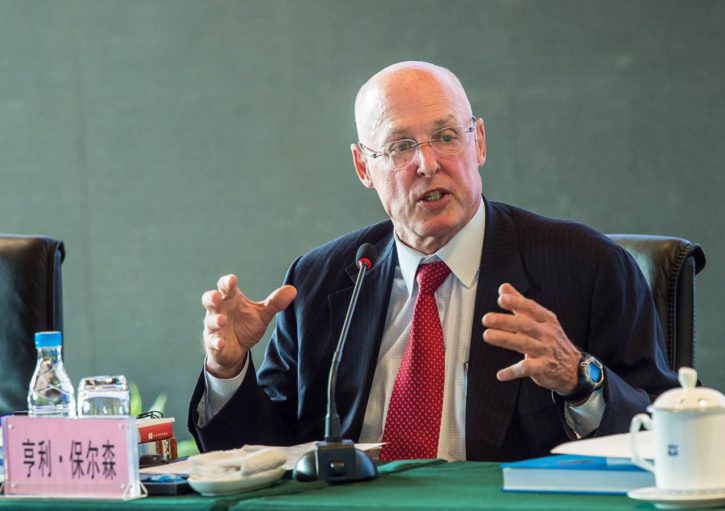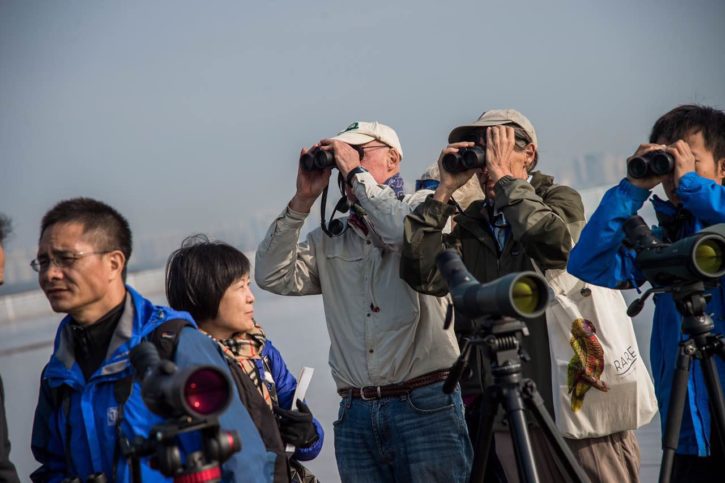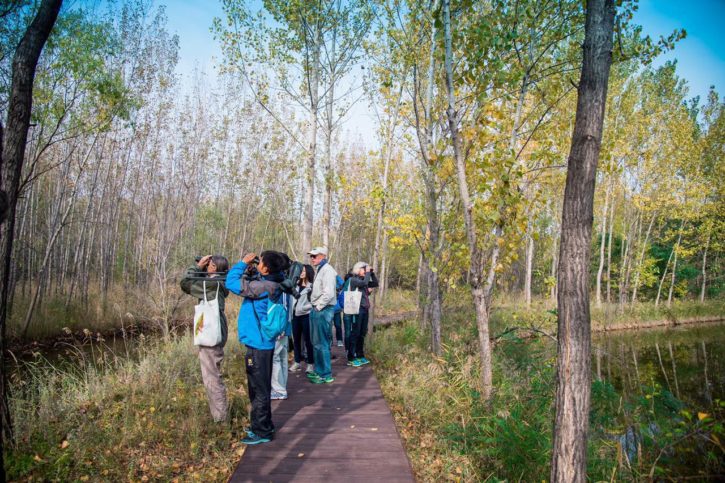China’s coastal wetlands sustain millions of migratory birds. But since 1950, about 60 percent of them have disappeared, converted for the expansion of industry, agriculture, and cities. China’s wetlands provide an estimated $30 billion a year in ecosystem services.
At Beidaihe Coastal Wetlands and Waterfowl Seminar 2016, Hank Paulson, chairman of the Paulson Institute and a lifelong conservationist, noted progress on preserving China’s endangered wetlands but called for urgent measures to stop the continuing “worrisome” loss. Paulson also announced the launch of a month-long awareness campaign of videos and blog posts on the Paulson Institute’s Wechat and website to raise awareness of the importance of wetlands and the migratory birds they sustain.

Remarks By Henry M. Paulson, Jr.
China’s wetlands are in trouble. From tidal mudflats on the coast to freshwater lakes and marshes, China’s vital wetlands are fast disappearing.
Between 1994 and 2010, roughly one-third of the original inter-tidal area of Bohai Bay was lost. Here in Beidahe, the coastal wetlands face threats from new highway construction and a dam at the Xin River.
This rapid loss is worrisome, to say the least. Wetlands are a crucial part of our planet’s life support. They protect against storms and help control flooding. They help clean the air and purify the water. They are among the most diverse and productive ecosystems on earth.

As President Xi Jinping once said to me, “We have to build more wetlands, which will be the kidneys of planet earth.”
For these reasons, wetlands preservation in China is among the Paulson Institute’s top priorities.
In October 2015, we released a national blueprint in partnership with China’s State Forestry Administration and scientists from the Chinese Academy of Sciences. The blueprint identifies and maps the most ecologically important wetlands in China. The idea here was to make sure that Chinese authorities have the best scientific information available to prioritize wetland protections and when they make decisions about reclaiming land for development.
Working with our partners, the Paulson Institute identified 180 priority conservation sites. And we put forward a set of concrete policy recommendations for government officials.
I am pleased to say that I received very positive responses from the Party Secretaries with whom we shared our blueprint. Already, a number of Chinese provinces are taking action:
- Jiangsu province plans to build a provincial-level nature reserve to protect the coastal mudflats in Rudong county.
- Beidagang wetland in Tianjin will be designated as a pilot national park.
- And Hebei province recently passed “Regulations on Wetland Protection” to strengthen conservation of its wetlands.
All of these achievements deserve attention and praise.
Another effort that the Paulson Institute has championed is the Coastal Wetland Conservation Network. We co-founded this network with China’s Management Office of Wetland Convention. Our aim is to coordinate conservation efforts among the network’s members – and build stronger conservation capacity for the whole coastal region of China.
Let me wrap-up with some thoughts on what the future holds for China’s wetlands. I believe we are close to a tipping point. But there is still time, if we act decisively, to preserve remaining wetland habitats.
I’m encouraged by the growing commitments by various Chinese institutions to preserve the remaining wetlands.

We can move forward by making sure citizens and policymakers are well-equipped with the right knowledge, tools, and ideas. This month, the Paulson Institute is launching a month-long awareness campaign of videos and blog posts to raise awareness of the importance of the wetlands and the migratory birds they sustain.
I’m encouraged by the work being done at today’s workshop. I believe this workshop provides an excellent platform to exchange information and views, analyze problems, and identify potential solutions for the region.


